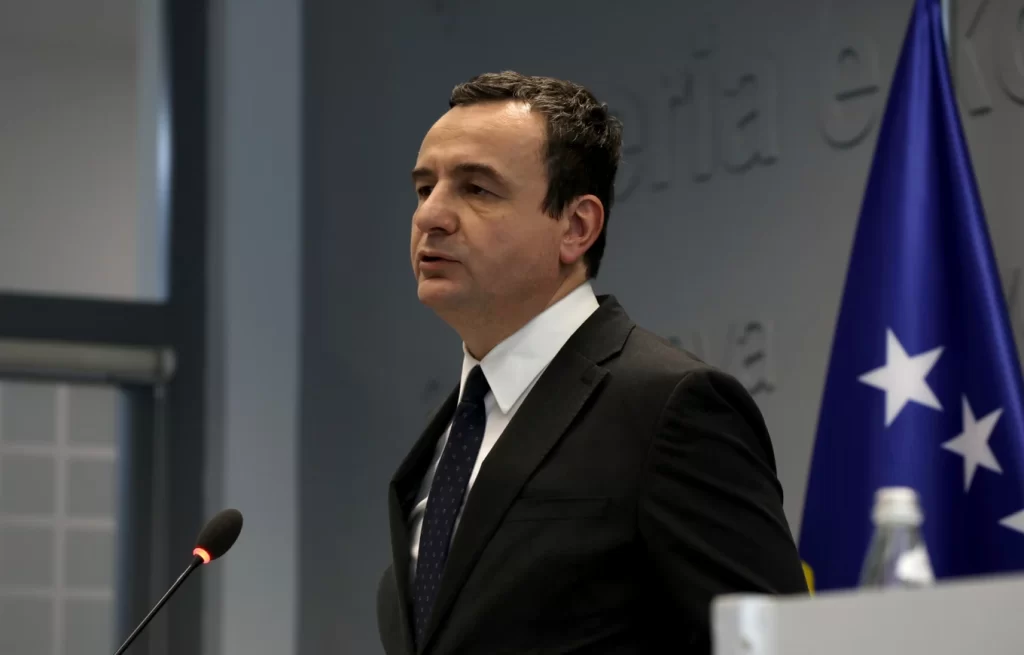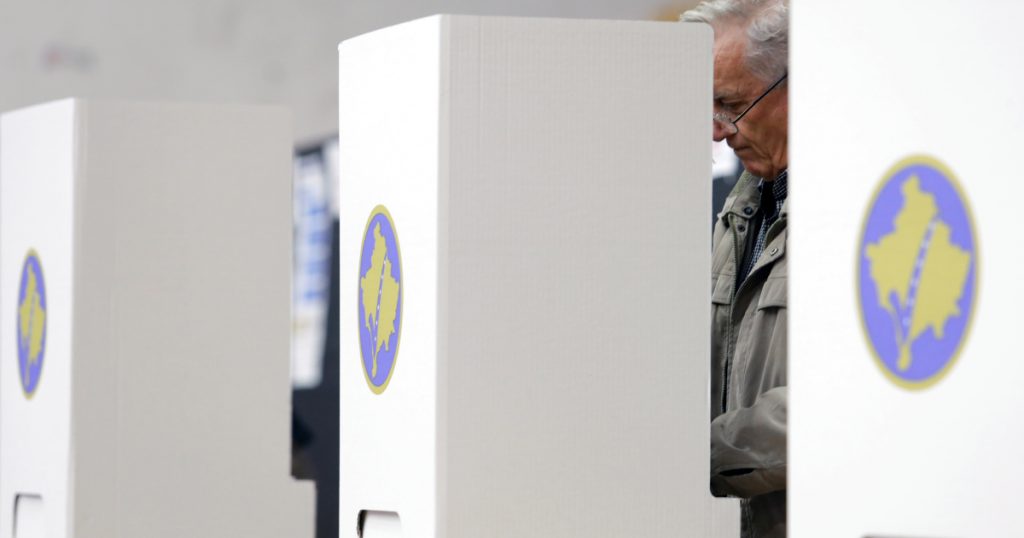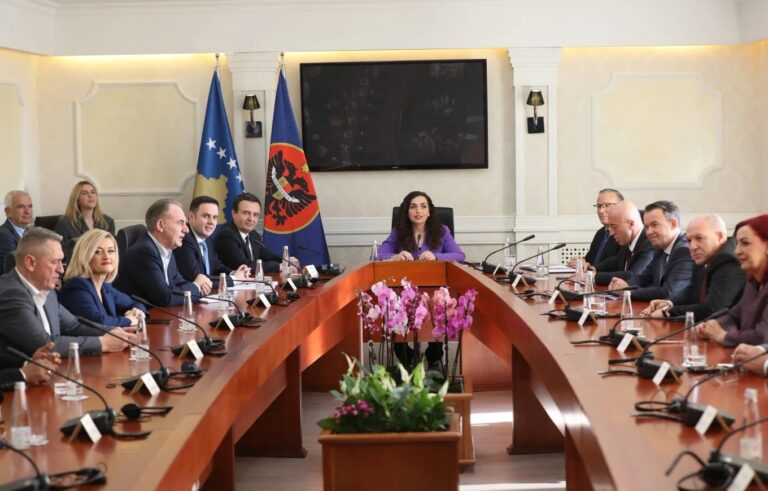Before dissolving parliament, President Osmani urged deputies to pass a budget extension, an appeal that underscored how fragile the moment has become. Without it, Kosovo enters the new year unable to pay salaries or maintain key services. The budget now sits untouched like a ‘gift left under the Christmas tree’, a symbol of how political maneuvering has eclipsed even the most basic duties of governance.
Kosovo’s political landscape has once again reached a critical inflection point. With the President’s decision to dissolve parliament, the country is headed toward early elections, likely by the end of December, ending months of political paralysis but also exposing enduring structural fragilities. On the surface, this move is a constitutional reset designed to break deadlock. Yet a closer analysis reveals a more troubling dynamic: Kosovo’s political system remains trapped in cycles of indecision, where coalition-building is transactional, governance is subordinate to campaigning, and institutional authority is continually undermined. The upcoming elections are therefore not merely a procedural necessity, they are a test of whether Kosovo can transform constitutional mechanisms into effective governance, or whether it will once again default to political performance at the expense of state functionality.
A Constitutional tool with political consequences
The dissolution of parliament is intended to provide a mechanism for resolving political stalemates, but its repeated use underscores persistent weaknesses in Kosovo’s institutional design. Coalition-building in the country is rarely based on policy alignment or long-term vision, it is a transactional exercise, often motivated by party advantage rather than national interest. When parties fail to negotiate workable alliances, the constitutional mechanisms, such as dissolution, become the default solution. While this ensures that the political system can technically continue to function, it comes at the cost of predictability and stability. Elections are accelerated, but the country’s capacity to govern remains compromised until a new majority is formed and empowered.
Risks of early elections
Elections, while a hallmark of democratic legitimacy, are not a panacea for systemic dysfunction. Kosovo’s electorate has endured repeated cycles of campaigning and short-lived governments, which has cultivated both political fatigue and skepticism. Another rapid electoral cycle risks reinforcing the perception that politics in Kosovo is more about competition and spectacle than about governance and effective policy-making. The immediate consequence is the continuation of administrative paralysis. Ministries can maintain routine operations, but they cannot authorize new reforms, negotiate international agreements, or implement policy initiatives without a fully mandated government. In practical terms, the state is temporarily functional, but strategically impotent.
This paralysis has tangible consequences. Budgetary processes, which require parliamentary approval, are under significant strain. Delays in approving allocations could threaten timely payment of public sector salaries, disrupt municipal projects, and delay essential services such as healthcare, education, and infrastructure development. Even the perception that salaries might be delayed can destabilize public administration, undermining both morale and citizen confidence. For Kosovo, where public administration represents one of the largest employers and a critical link between the state and society, this is far more than a technical issue, it is a measure of the government’s credibility and capacity to deliver basic services.
Economic and development implications
Beyond immediate fiscal concerns, the economic cost of political instability is profound. Kosovo’s development trajectory depends on long-term planning in key areas, including energy sector reform, infrastructure modernization, and investment facilitation. Political uncertainty discourages both foreign and domestic investment, slows economic activity, and heightens emigration among young people seeking stable opportunities abroad. Each month without a fully functioning government compounds these losses. The suspension of major policy initiatives is not a neutral pause, it is a regression that slows the country’s integration into regional and European markets, diminishes investor confidence, and risks entrenching cycles of economic underperformance.
Opportunities in crisis
Yet the dissolution of parliament, while reflecting systemic fragility, also presents a potential opportunity. Early elections can compel political parties to reconsider their strategies and the coalitions they pursue. Frustrated citizens may demand more responsible governance, creating incentives for parties to prioritize stability over short-term advantage. International actors, particularly the European Union and the United States, now have leverage to encourage coalition-building that is not only expedient but sustainable, aligning domestic governance with broader strategic imperatives such as EU integration and regional stability. If leveraged carefully, the upcoming elections could yield a government capable of decisive action, breaking the cycle of inactivity and underperformance.
However, these opportunities are constrained by structural realities. Kosovo’s political system is highly fragmented, reliant on coalition governments, and often shaped by external influences, including both regional actors and international mediators. Political culture, emphasizing campaigning over governing and short-term gains over institutional responsibility, further complicates the formation of effective governments. Even with elections, there is no guarantee that a functional majority will emerge, or that parties will demonstrate the discipline required to implement coherent policy. The institutional form exists, but its function depends on actors willing to engage in governance rather than political theater.
The backward push of political mindset
Kosovo’s recurring cycles of indecision illustrate a political mindset that actively hinders state-building. Campaigning has become more comfortable than governing, confrontation is preferred over compromise, and party advantage often trumps national interest. This mentality pushes Kosovo backwards rather than forwards, undermining the consolidation of institutions and normalizing uncertainty. Each month without decisive action diminishes the prospects for effective governance, leaving the country vulnerable to both internal stagnation and regional pressures. Without a cultural shift among political actors, elections risk being merely another episode in a performance-based political cycle rather than a true catalyst for reform and progress.
Looking forward
Kosovo now faces a critical crossroads. The dissolution of parliament has reset the electoral clock, providing a potential path out of deadlock. Yet the outcome depends on whether political parties can engage in genuine coalition-building and prioritize governance over electoral spectacle. The electorate, fatigued by repeated cycles of indecision, will be watching closely, and international partners remain invested in the outcome.
December’s elections are therefore not merely procedural. They represent a test of Kosovo’s political maturity: will the country seize the opportunity to form a government capable of decisive leadership, implement necessary reforms, and stabilize its institutions, or will it default to the familiar patterns of stalemate and administrative paralysis? Recognition battles, security challenges, economic reforms, and foreign policy obligations do not pause for domestic indecision. Kosovo cannot afford another year of inaction.
The dissolution of parliament is more than a constitutional reset, it is a signal to Kosovo’s political class that governance is both an opportunity and a responsibility. The electorate and the international community are observing closely, and the cost of failure is higher than ever. Kosovo’s future hinges on its ability to transform elections into effective governance, to shift political culture from performance to responsibility, and to ensure that democratic institutions function not only in theory but in practice. The upcoming elections will reveal whether Kosovo is prepared to step decisively into this responsibility or whether it will remain trapped in cycles of repeated crisis.

More on this story: Institutional paralysis in Kosovo – Causes and Consequences

More on this story: Kosovo is facing a political crisis

More on this story: Kosovo: Where elections are seen as a solution




